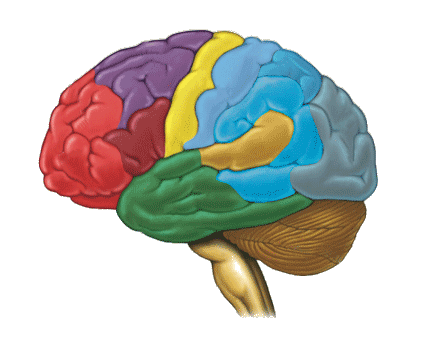Which come first for you: happiness or success? Many people think, “if I lose weight, or have more money, or find the right mate or am more successful at work, then I’ll be happy.” But it turns out that this happiness formula is backwards. Research actually shows that every single relationship, business, educational and health outcome improves when we become more positive first.
 Shawn Anchor, a Harvard-trained researcher and an expert in positive psychology*, says that the brain works significantly better when we’re feeling positive. A positive brain bumps up our human potential and longevity. When we feel happy we have significantly higher levels of productivity, more energy, better self-efficacy, improved immune system function, higher pain tolerance and 3 times the levels of creativity. It turns out that rational optimism** is a great predictor of success because it allows the brain to perceive more possibilities. The more you believe in your own ability to succeed, the more likely it is that you will. Beliefs are powerful because they dictate your efforts and actions.
Shawn Anchor, a Harvard-trained researcher and an expert in positive psychology*, says that the brain works significantly better when we’re feeling positive. A positive brain bumps up our human potential and longevity. When we feel happy we have significantly higher levels of productivity, more energy, better self-efficacy, improved immune system function, higher pain tolerance and 3 times the levels of creativity. It turns out that rational optimism** is a great predictor of success because it allows the brain to perceive more possibilities. The more you believe in your own ability to succeed, the more likely it is that you will. Beliefs are powerful because they dictate your efforts and actions.
If you are going to focus on achieving a goal such as losing weight, start with happiness. Don’t  tell yourself you have to wait until you reach your target before you’ll feel good about yourself. Make a list of the qualities you like about yourself which will help you accomplish your goals. You definitely don’t want to fixate on what you don’t like about yourself. Your brain will record your unhappiness and you’ll be starting in a deficit. Constantly scanning ourselves (and the world) for the negative comes with a great cost. It undercuts our creativity, raises our stress levels, and lowers our motivation and ability to accomplish goals. By prioritizing happiness, you increase the chance of achieving the health outcome you seek.
tell yourself you have to wait until you reach your target before you’ll feel good about yourself. Make a list of the qualities you like about yourself which will help you accomplish your goals. You definitely don’t want to fixate on what you don’t like about yourself. Your brain will record your unhappiness and you’ll be starting in a deficit. Constantly scanning ourselves (and the world) for the negative comes with a great cost. It undercuts our creativity, raises our stress levels, and lowers our motivation and ability to accomplish goals. By prioritizing happiness, you increase the chance of achieving the health outcome you seek.
Happiness is not about smiling all the time. If you’re going to live a rich and authentic life you’re going to feel a full range of emotions. Happiness encompasses living with meaning, learning and growing, using your gifts, focusing on your strengths and living with purpose. Happiness is not a mystery, but it does take work to cultivate. It needs to be developed and nurtured.You have to train your brain to be positive just like you work out your body. We not only need to work happy we need to work at being happy.
There are many valuable happiness habits that we can be practicing daily. My top two are: exercise and get plenty of sleep. (No surprise, right?) Exercise is a KEY to happiness. People who exercise are healthier, more energetic, think more clearly, sleep better, and have delayed onset of dementia. They perform better and get relief from anxiety and mild depression.
Here are 5 researched happiness habits as recommended by Shawn Achor in his book The Happiness Advantage:
1. Write down three new things you are grateful for each day. Research shows this will significantly improve your optimism even 6 months later, and raises your success rates significantly.
2. Write for 2 minutes a day describing one positive experience you had over the past 24 hours. This is a strategy to help transform you from a task-based thinker, to a meaning based thinker who scans the world for meaning instead of endless to-dos. This dramatically increases work happiness.
3. Exercise for at least 10 minutes a day. This trains your brain to believe your behavior matters, which causes a cascade of success throughout the rest of the day.
4. Meditate for 2 minutes, focusing on your breath going in and out. This will help you undo the negative effects of multitasking. Research shows you get multiple tasks done faster if you do them one at a time. It also decreases stress and raises happiness.
5. Write one, quick email first thing in the morning thanking or praising someone you know. This significantly increases your feeling of social support, which in Shawn’s study at Harvard was the largest predictor of happiness for the students.
*The subject of happiness is being researched and discussed a lot these days, largely due to the growing interest in an emerging field that studies human functioning known as Positive Psychology. While other branches of psychology tend to focus on dysfunction and abnormal behavior, positive psychology concentrates on human prospering and building strengths and values, such as optimism, resilience and courage to help people thrive and become happier.
**Shawn Achor defines rational optimism as “a realistic assessment of the present, while maintaining a belief that our behavior will eventually create a better reality.”
